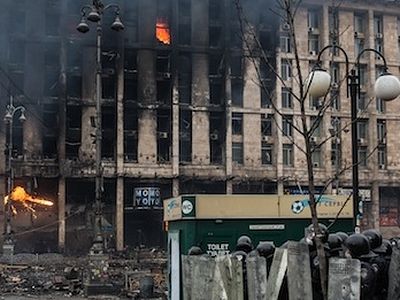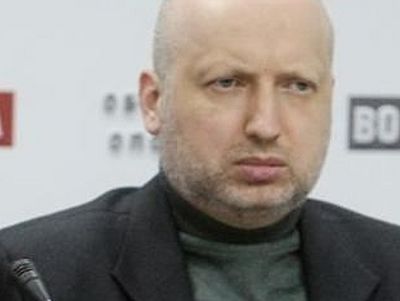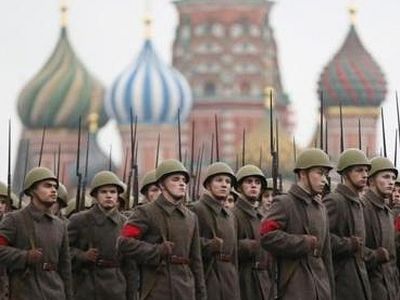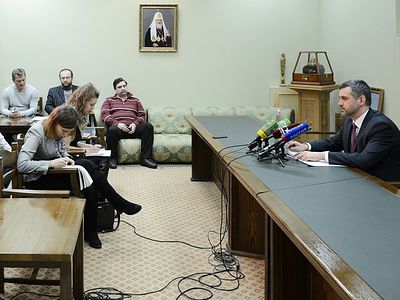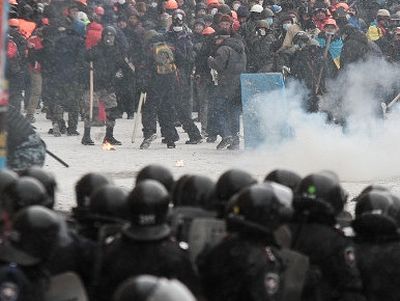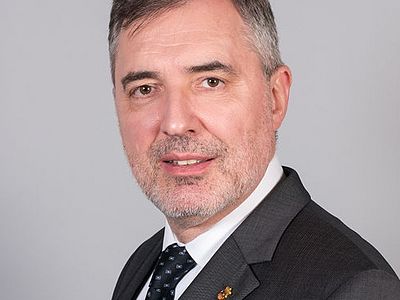Source: The ChronicleHerald
By Scott Taylor
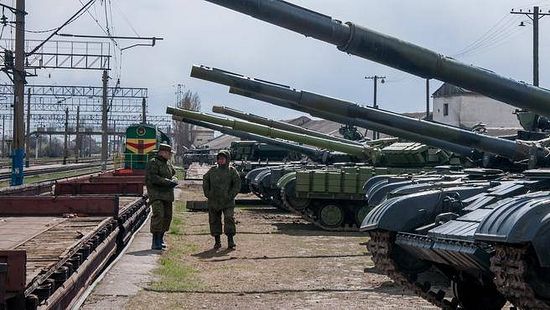 Ukrainian armored vehicles are prepared for loading onto a train at a railway station near Simferopol, Crimea, Saturday. (THE ASSOCIATED PRESS)
Ukrainian armored vehicles are prepared for loading onto a train at a railway station near Simferopol, Crimea, Saturday. (THE ASSOCIATED PRESS)
As dramatic events continue to unfold in the Ukraine over the status of the Crimea, it is disturbing to see the western media donning their cheerleading costumes rather than attempting to present a balanced overview.
In the totally dumbed-down equation presented to Canadian audiences, freedom-loving Ukrainians took to the streets of Kyiv to force their despot ruler, President Viktor Yanukovych, from power.
We are told Yanukovych’s undoing was that he rejected a financial bailout package from the European Union in order to secure a similar bailout package from the Russians. The storyline then proceeds with a rebuffed Russia, under the direction of imperial-minded President Vladimir Putin and his oligarch henchmen, invading the Crimea.
Then, under the watchful eye of Russian soldiers, Putin holds a hasty referendum that produces an overwhelming majority of the votes cast wishing to amalgamate Crimea with Russia.
This simple notion of Russia invading neighbouring countries and gobbling up territory has been further dumbed-down by Prime Minister Stephen Harper, who publicly opined that Putin’s actions mirror those of Adolf Hitler’s desired annexation of Czechoslovakia in 1938.
In other words, according to Harper, if we conclude a similar “peace in our time” appeasement deal such as the one brokered by British Prime Minister Neville Chamberlain in 1938 with Hitler over Czechoslovakia, we will only have ourselves to blame when Putin invades all of Europe in the coming months.
Of course, while such a simple “good versus evil” scenario makes it easy to choose sides, the current crisis in Ukraine is far from simple. Since gaining independence from the Soviet Union in 1991, Ukraine has always been a deeply divided nation, torn between strengthening ties to the European Union and clinging to historical roots with Russia.
The rough dividing lines exists along the Dnieper River. On the west bank, the largely Catholic ethnic Ukrainian population seeks European bonds, while the predominantly Orthodox Christian ethnic Russians on the east bank lean toward Moscow.
Forgotten in all the violent protests to oust Yanukovych is the fact that he was the country’s legally elected president. Also overlooked in the media coverage of the Maiden Revolution in the streets of Kyiv is the fact that the hardcore nucleus of the demonstrators consists of neo-Nazi thugs.
One of the most notorious of these is Aleksandr Muzychko, a.k.a. Sashko Billy. His Right Sector party vowed not to rest until they had killed “every Communist, Russian and Jew” in Ukraine. It was some of these Right Sector extremists who were killed by security forces during the demonstrations and who were subsequently mourned by Harper and Foreign Affairs Minister John Baird when they visited Independence Square in Kyiv last week.
It was shortly after the official Canadian delegation visited Ukraine that Sashko Billy was executed while resisting arrest by a special unit of the Ministry of the Interior.
While having neo-Nazis in your midst is never a selling point when seeking bailout funding and support, the idea that the interim Ukrainian government could simply gun down former allies who have become an embarrassment is also not exactly a good example of projecting a civil society.
For the record, Sashko Billy’s loyal Right Sector followers have vowed to avenge their fallen martyr and have declared war on the Interior Ministry.
Another far-right Ukrainian nationalist movement, which currently holds 40 seats in the interim parliament, is the Svoboda or Freedom Party. In another bizarre incident largely unreported in the western media, three cabinet ministers from Svoboda filmed themselves storming into the head office of the state-run National Television Company. As seen in the video, they then proceed to beat and intimidate the company director into writing his own resignation.
The director’s offence was to broadcast Putin’s speech declaring the Crimea to be Russian territory. One of the assailants just happens to be Ukraine’s deputy head of the Freedom of Speech Committee.
Also missing from the simplistic Harper and Baird Ukraine equation is the fact that the interim parliament’s first act was to pass a bill banning the use of Russian as the second official language.
While President Oleksandr Turchynov has yet to approve this law, one can presume that it sends a seriously divisive message to those ethnic Russians east of the Dnieper and in Crimea.
Following Harper’s visit to Kyiv in advance of the March 24 G-7 summit meeting, the media in attendance reported to Canadians that “Canada was taking a leading role” in the Ukraine crisis.
What they failed to mention is that it is only a leading role if someone follows. No other European leader has yet to so closely embrace the current Kyiv leadership.
If one dives headfirst into an unfamiliar watering hole while the local residents carefully test the waters, it does not demonstrate leadership. It exemplifies reckless abandon.
